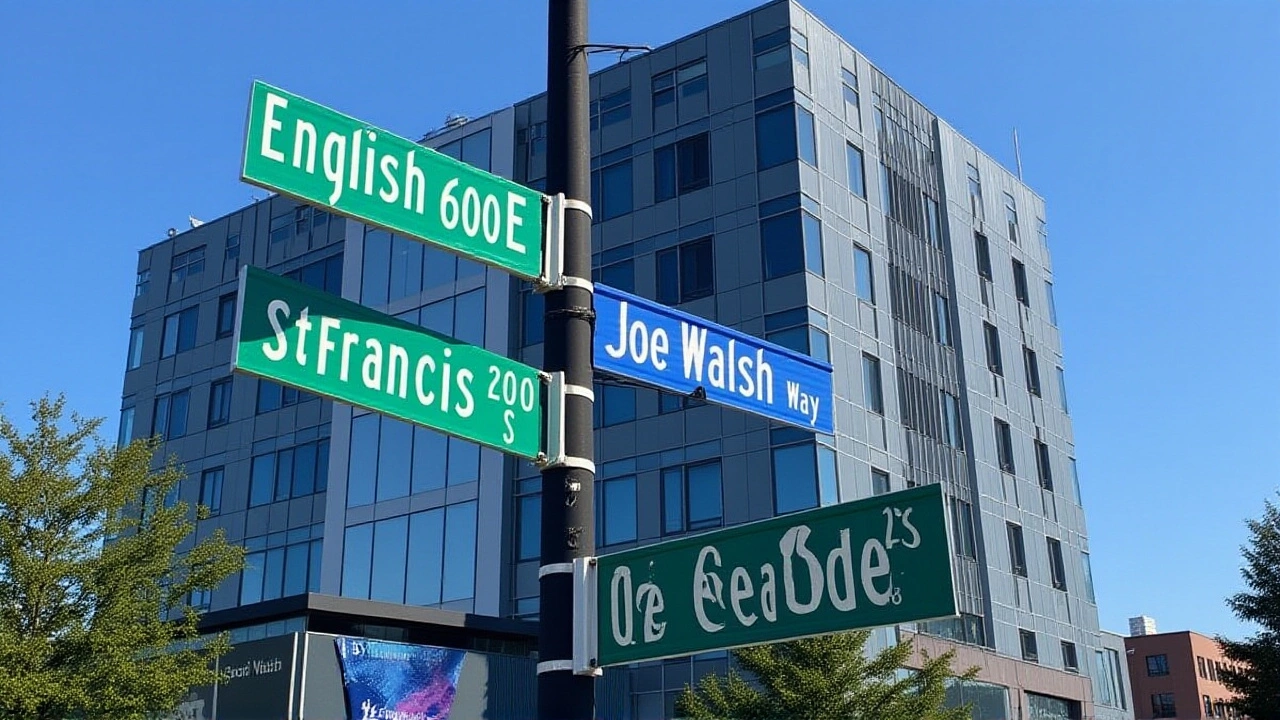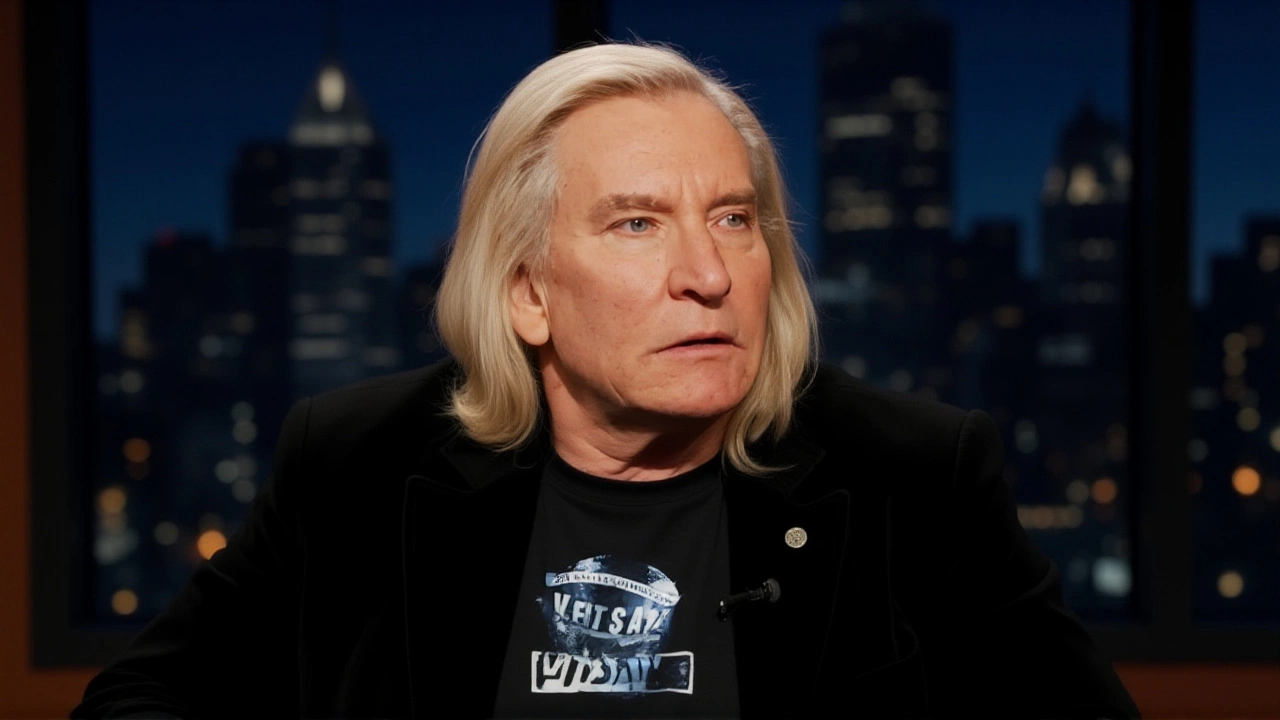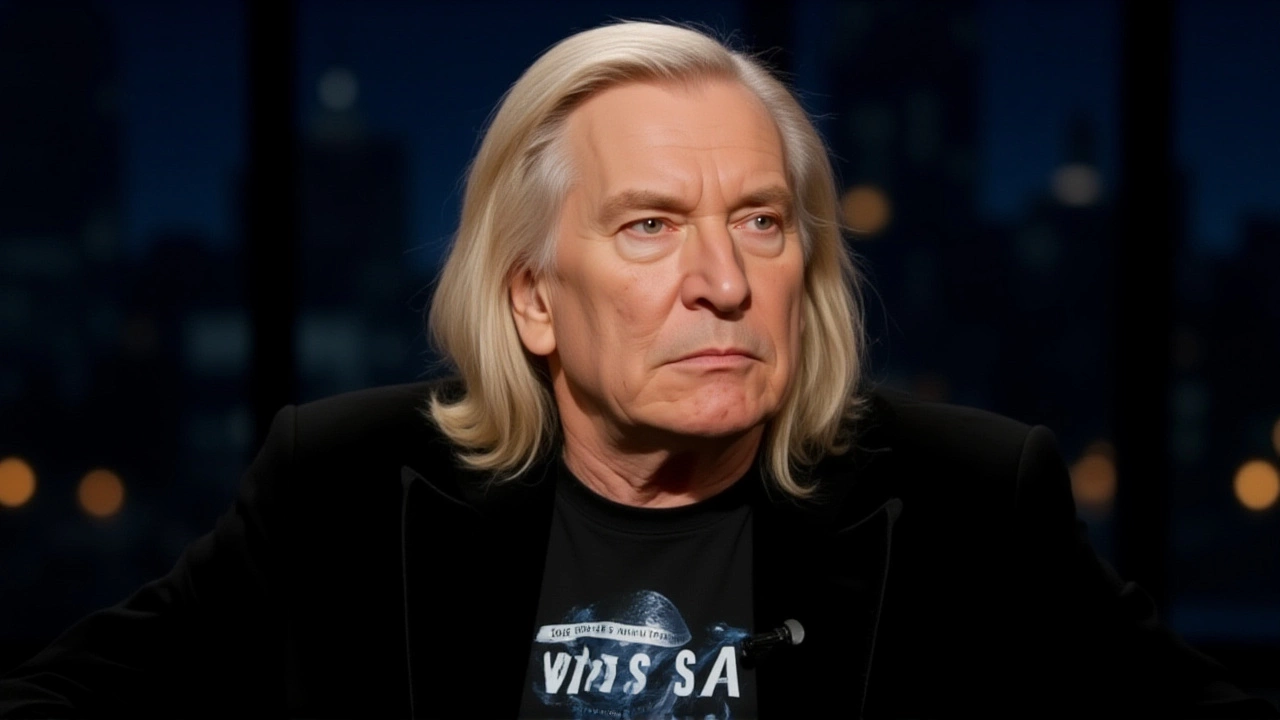20 Nov 2025
- 0 Comments
It wasn’t the feedback, the broken string, or even the booing crowd. It was the silence — the kind that swallows you whole when you realize you’ve lost your voice, your edge, your reason to play. Joe Walsh, the gravel-voiced guitarist whose riffs defined the Eagles’ golden era, once faced a show he swore would be his last. "We were deadly scared," he told Far Out Magazine in September 2025, recalling a performance so raw, so emotionally exposed, he thought the music had finally abandoned him. That night, years ago, didn’t kill his career — it saved it.
The Gig That Broke Him — And Then Put Him Back Together
The exact date, venue, or even the name of the song that nearly ended Joe Walsh’s stage career remains elusive. But the feeling? That’s etched in stone. In interviews since, Walsh has described it as a moment when the music stopped being a shield and became a mirror. He was touring with the Eagles in the late 1970s, years after joining following Bernie Leadon’s departure. The band was at its commercial peak, but internally, it was cracking. Creative control, songwriting credits, and the relentless grind of touring had turned brotherhood into bureaucracy. "The pressure to stay perfect night after night was relentless," as one documentary noted. Walsh, though not the primary songwriter, was the sonic wild card — the guy who brought the fuzz, the slide, the unhinged energy that made "Hotel California" feel alive. But when the band’s sound became a machine, he felt like a cog.
That night — the one he calls "deadly" — he walked onstage drunk, exhausted, and emotionally hollow. He forgot the chords to "Life’s Been Good." He missed cues. The crowd, expecting fireworks, got silence. And then, something strange happened: someone in the front row started clapping. Not because it was good — but because it was real. "That’s when I knew," Walsh later said, "I didn’t need to be perfect. I just needed to be there."
VetsAid: From Rock Outlaw to Kansas Hero
Fast forward to November 15, 2025. The INTRUST Bank Arena in Wichita, Kansas — Walsh’s birthplace, where his parents are buried, where he still feels the weight of home — was packed. Not for nostalgia. Not for the Eagles’ legacy. But for VetsAid, the charity Walsh founded nearly a decade ago to support veterans’ mental health, housing, and employment. This was the ninth annual concert. And it was the first time it came home.
"It’s where my parents were both born and are buried," Walsh said from the stage, voice cracking slightly. "Where I was born. Where I will always feel a deep connection and sense of heritage and responsibility."
That night, he shared the stage with Vince Gill, his current Eagles bandmate; Susan Tedeschi and Derek Trucks, whose blues-soaked guitar work Walsh described as "fifth-level black belt"; and Nathaniel Rateliff and Ryan Bingham, artists who, like Walsh, know how to turn pain into power.
And then there was Trucks — the guitarist Walsh met when he was just nine years old, standing nervously backstage. "I didn’t know what to say," Walsh recalled. "He didn’t know what to say. But I could tell right then he had all the tools he needed. I gave him tips about what not to do."
It’s poetic: the man who once feared he’d lost his way now mentors the next generation — while raising over $4 million for veterans through VetsAid. In fact, ahead of the 2025 concert, the city of Wichita renamed a street Joe Walsh Way — a quiet, unassuming honor for a man who never sought the spotlight for his charity work.

The Eagles Aren’t Done — And Neither Is He
Walsh joined the Eagles in 2017, stepping into the void left by Glenn Frey’s 2016 death. He didn’t replace Frey. He honored him. Now, with Frey’s son Deacon and Vince Gill carrying the torch, the band is set to resume its Sphere residency in Las Vegas from January through March 2026. Walsh, ever the pragmatist, says simply: "I know we’re not done yet."
But his solo path is just as vital. Guitar Player magazine confirmed he’s finalizing new material for a 2026 release — his first solo album in over a decade. The sound? Raw. Unpolished. Honest. The kind of music that comes after you’ve stared into the silence and chosen to speak anyway.
Meanwhile, the "Life’s Been Good" auction with Julien’s Auctions on December 16–17, 2025, at the Troubadour in West Hollywood will feature more than 800 items: his 1966 Framus Strato Gold De Luxe 12-string, handwritten lyrics, vintage tour buses, even the boots he wore during that "deadly" gig. All proceeds fund VetsAid.

Why This Matters
Joe Walsh’s story isn’t just about rock and roll. It’s about survival. About what happens when the music stops being a career and becomes a calling. He didn’t leave the Eagles because he lost his talent. He left — temporarily — because he lost himself. And he found his way back not through fame, but through service.
His journey mirrors a deeper truth: the most powerful performances aren’t the ones that dazzle. They’re the ones that dare to be broken. That’s why a street in Wichita bears his name. That’s why veterans across the country now have housing, therapy, and hope — because a rock star once faced his own darkness, and chose to shine a light for others.
Frequently Asked Questions
What was the "deadly" gig Joe Walsh almost quit over?
The exact details of the gig remain unspecified, but Walsh described it as a moment during his late-70s Eagles tenure when he felt emotionally and creatively hollow. He forgot chords, missed cues, and faced silence from the crowd — a terrifying experience that made him question whether he should continue. That night became a turning point, leading him to value authenticity over perfection.
How has VetsAid impacted veterans since its founding?
Since launching in 2016, VetsAid has raised over $4 million to support regional veterans’ organizations in cities where concerts are held. Funds go toward mental health counseling, housing assistance, job training, and suicide prevention programs. The charity operates without corporate sponsors, relying entirely on ticket sales and auctions — making every dollar directly tied to Walsh’s personal commitment.
Why did Joe Walsh join the Eagles after Glenn Frey’s death?
Walsh joined the Eagles in 2017 not to replace Frey, but to preserve the band’s legacy. He had deep musical and personal ties to the group from his 1970s tenure. With Frey’s son Deacon and Vince Gill now sharing lead vocals, Walsh brings the raw, bluesy guitar edge that defined the band’s sound — a role he says he feels honored to fulfill, not replace.
What’s special about the "Life’s Been Good" auction?
The December 2025 auction at the Troubadour features over 800 items spanning Walsh’s entire career — from his James Gang days to Eagles memorabilia and his iconic 1966 Framus 12-string guitar. The auction is curated to tell his story, not just sell artifacts. All proceeds directly fund VetsAid, turning his personal history into life-saving support for veterans.
Why was a street in Wichita renamed Joe Walsh Way?
Wichita renamed a street in his honor in November 2025 ahead of the VetsAid concert, recognizing his lifelong ties to the city and his decades of service to veterans. Unlike many celebrity honors, this one wasn’t tied to fame — it was a grassroots response to his quiet, consistent commitment to his hometown and its military community.
Is Joe Walsh planning new music in 2026?
Yes. According to Guitar Player, Walsh is finalizing his first solo album in over ten years, set for a 2026 release. The material is described as introspective and stripped-down, reflecting his recent emotional honesty on stage. Fans can expect themes of loss, resilience, and redemption — the same themes that define his VetsAid mission.
